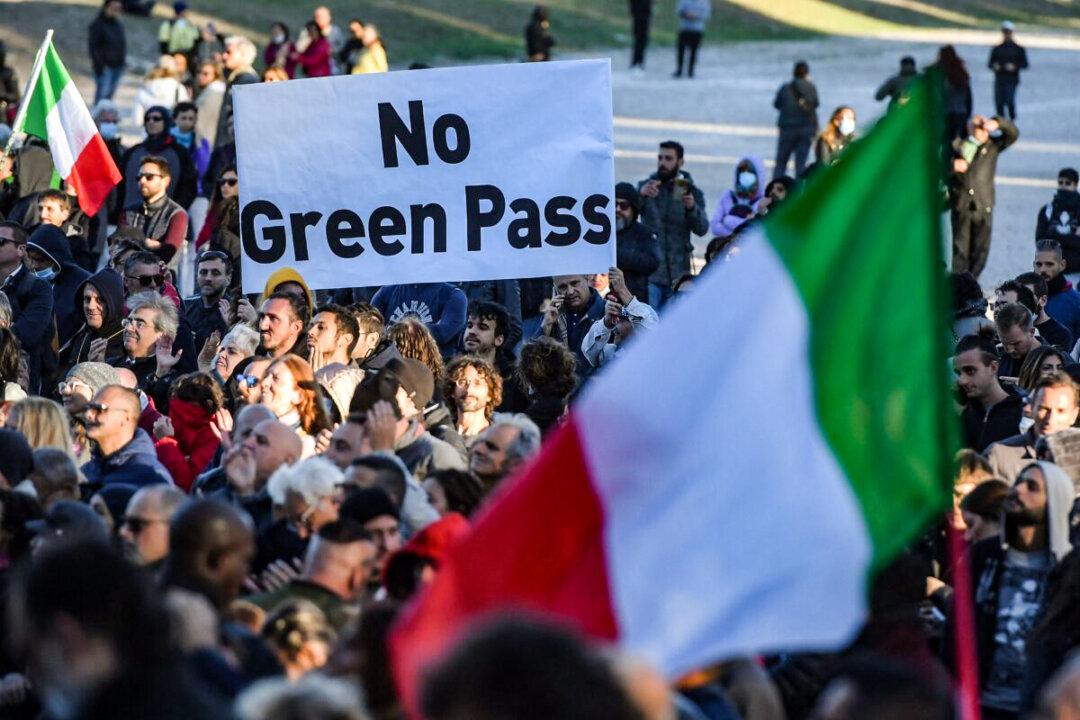Italian health care workers who have been suspended for rejecting COVID-19 vaccines will soon be able to return to work, the European country’s top health official said on Oct. 28.
Orazio Schillaci, who was appointed by Italy’s newly formed ruling coalition to lead the Ministry of Health, said his administration is working on a measure that would reinstate unvaccinated doctors and nurses before the end of the year.





